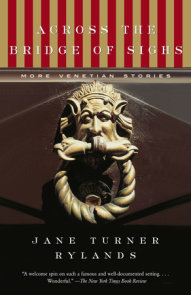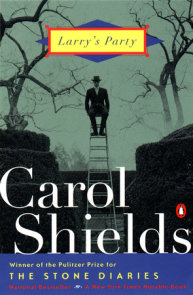READERS GUIDE
Set in the gritty heart of Chicago, Dawn Turner Trice’s debut novel, Only Twice I’ve Wished for Heaven, was hailed by the Washington Post as "a polished gem that shines from every angle, rich in rhythm, story, characterizations–." In her second novel, An Eighth of August, Trice explores small-town life in southern Illinois, once again creating a work that sparkles with insight and humor. The discussion questions and author interview in this guide are designed to enhance your reading group’s discussion of these two portraits of African-American life in the late-twentieth century, limned by an author who has been compared to such distinguished and beloved writers as Gloria Naylor, Toni Morrison, James Baldwin, and Harper Lee.Introduction
An Eighth of AugustBuilt by the first generation of liberated slaves and named in honor of the legend that Halley’s Comet landed there, the town of Halley’s Landing, Illinois, celebrates the signing of the Emancipation Proclamation every August 8th with the grandest festival in the Midwest. It is a time of good eating and good-natured competitions, of reunions and reminiscences. But in 1986, the atmosphere is charged in a different way, the pleasures and excitement tainted by the memory of the tragedy that occurred exactly one year before.
As usual, the home of Cora, the town matriarch, is abuzz with people. There’s the sharp-tongued Flossie, who made a life for herself as town postmistress after her husband and teenage daughter left under the shadow of scandal. Flossie’s sister-in-law, Thelma, and her loving, patient husband, Herbert, have come from Ohio for the festival–and to persuade their diffident, troubled son, Pepper, to take responsibility for his own life and his about-to-be-born child. May Ruth, an Englishwoman Cora befriended years before, is back, too, as ready as ever to lend her own brand of eccentricity to the goings-on. Amid the traditional preparations, and the equally traditional disputes, criticism, and commentary, they reflect on the past, on absent family, and on the ties that keep them together. As each one interprets and reacts to the same events, the complexities of their relationships are revealed. Funny, moving, ornery, and outspoken, their voices bring to life a specific time and place and transform it into a story of universal resonance and meaning.
Questions and Topics for Discussion
1) For discussion of An Eighth of August:
An Eight of August presents the same events from several different points of view. Which narrator most closely represents, if any, the voice of the author? Did your opinions of the characters change as you saw them through different eyes? Did you trust their own words and perceptions more than the portraits others painted of them?
2) Sweet Alma is a central character in the book, despite the fact that she isn’t present in 1986. Drawing on the impressions the other characters offer, how would you describe her? Do you feel sympathy for her or do you think she is acting selfishly by not returning to Halley’s Landing?
3) What motivated Flossie’s decision to send Simon and Sweet Alma to St. Louis? Was she merely protecting the family from scandal? In what ways did it reflect her dissatisfaction with her own life? What would have happened to Sweet Alma had she remained in Halley’s Landing?
4) Why did Flossie decide to raise El herself? To what extent was she influenced by the close-knit community of Halley’s Landing and the attitudes of her friends and family? Would she have made the same decisions about both her daughter and her grandson in Chicago, where she, Simon, and Sweet Alma lived before coming to Halley’s Landing?
5) The people of Halley’s Landing are very involved with each other’s lives. Do you think this is an accurate portrait of small-town life? Are the characters more tolerant of each other because of their shared histories? Are they more accepting of eccentricities and idiosyncrasies than members of your own community?
6) Trice portrays the relationships between several couples: Flossie and Simon, Herbert and Thelma, Pepper and June, and May Ruth and John. Discuss how each of these relationships represents a different concept of love and marriage. What makes Herbert and Thelma’s marriage so successful? Why do Flossie and Simon continue to meet years after their divorce, and why do they keep it a secret from the others? Do your sympathies for June and Pepper change when you learn more about June’s background? Do you think they will be able to overcome their pasts and form a family of their own?
7) Thelma is presented as a scattered-brained, flighty, naively endearing woman. How does Trice convey Thelma’s strengths without contradicting the portraits the narrators draw?
8) Does Cora’s position as confidante and mediator to the others give added weight and credibility to her version of events? How does her dream about El and Sweet Alma [pp. 74-75] show a side of her that is not apparent in her straightforward accounts of the day-to-day activities?
9) What role does May Ruth play in the novel? Why does Trice wait until the end of the book to reveal her story and how she became a part of Cora’s and the others’ lives?
10) Why do Pepper and El allow the others to believe that Pepper was the one who attacked Mr. Paul? Why does Flossie allow Pepper to accept the blame for El’s death? What insights does this give you into Flossie’s own feelings of guilt and responsibility?
11) Why did Trice set the story against the background of an Emancipation Day celebration? Discuss how the conversations and events of the 1986 festival represent a personal emancipation for each of the characters.
For discussion of the two novels
1) Trice describes three different African-American communities–the posh Lakeland and sordid 35th Street in Only Twice, and the rural midwestern town of Halley’s Landing in An Eighth of August. In what ways do each of these communities reflect the history of African-Americans in this country and the social and economic realities of America today? What attitudes or beliefs do the characters who inhabit these very different worlds share?
2) Only Twice deals graphically with the problems of urban living–drug addiction, prostitution, casual violence, governmental indifference and neglect, not to mention that the fateful events in An Eighth of August are set in motion by Mr. Paul’s act of perversion. What keeps the negative events at the heart of the novels from overshadowing the stories Trice tells?
3) Why does Trice use more than one narrator? How do the changes in voice shape the stories she tells? Did you identify more closely with specific narrators, and if so, why?
4) Tempestt tells her story from the vantage point of twenty years, and the recollections in An Eighth of August switch back and forth from 1973 to 1986. How do the changing time frames and perspectives strengthen the power of the novels?
5) In Only Twice, all the characters are African-American. In her second novel, Trice included a white woman, May Ruth, as part of the community she creates. What do you think she was trying to accomplish by doing this? Does May Ruth’s background and race influence the way the other characters relate to her?
6) Both Tempestt and Pepper witness the death of their best friends, and both feel a sense of responsibility for the tragedy. How do their reactions differ? How do the reactions of the adults around them affect their abilities to cope with their guilt? We know that Tempestt ended up living a rich, fulfilling life. What do you think will happen to Pepper in the future?
From the Hardcover edition.




















